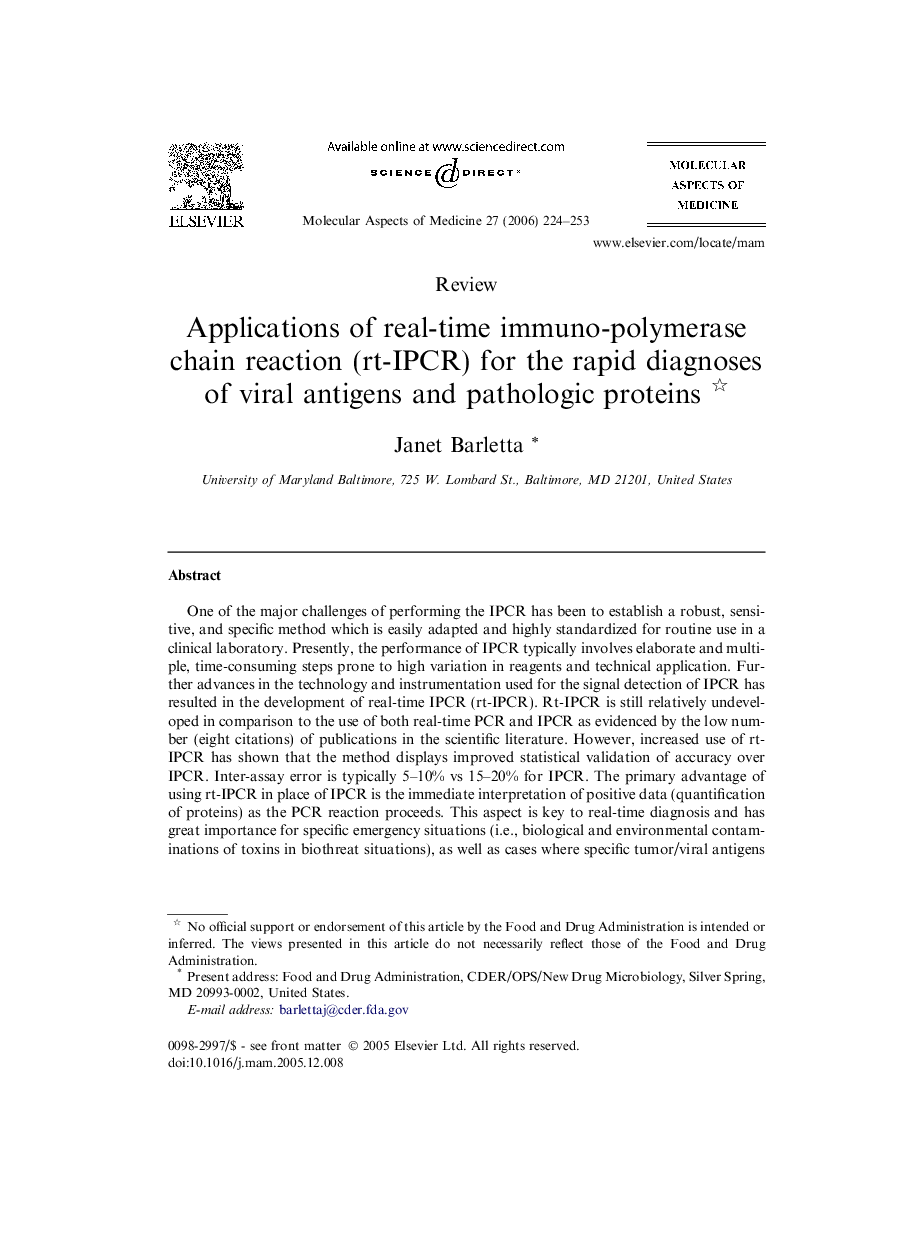| Article ID | Journal | Published Year | Pages | File Type |
|---|---|---|---|---|
| 1995981 | Molecular Aspects of Medicine | 2006 | 30 Pages |
One of the major challenges of performing the IPCR has been to establish a robust, sensitive, and specific method which is easily adapted and highly standardized for routine use in a clinical laboratory. Presently, the performance of IPCR typically involves elaborate and multiple, time-consuming steps prone to high variation in reagents and technical application. Further advances in the technology and instrumentation used for the signal detection of IPCR has resulted in the development of real-time IPCR (rt-IPCR). Rt-IPCR is still relatively undeveloped in comparison to the use of both real-time PCR and IPCR as evidenced by the low number (eight citations) of publications in the scientific literature. However, increased use of rt-IPCR has shown that the method displays improved statistical validation of accuracy over IPCR. Inter-assay error is typically 5–10% vs 15–20% for IPCR. The primary advantage of using rt-IPCR in place of IPCR is the immediate interpretation of positive data (quantification of proteins) as the PCR reaction proceeds. This aspect is key to real-time diagnosis and has great importance for specific emergency situations (i.e., biological and environmental contaminations of toxins in biothreat situations), as well as cases where specific tumor/viral antigens and pathologic proteins may be present in body tissues in extremely low concentrations and rapid, early diagnosis is important for immediate palliative treatment. This review summarizes all of the experimental data published to date utilizing the rt-IPCR method for various analytes (vascular endothelial growth factor, mumps Ag, rViscumin, various IgG, gliadin, HIV-1 p24 Ag, Rotavirus VP6, pathologic and recombinant prion, and prostate specific Ag) and describes the molecular scaffold formats, solid formats, instrument detection systems, and probes/primers or fluorescent dyes used in these assays. With further standardization and validation, rt-IPCR has the potential to become the most analytically sensitive method available for the detection of proteins.
